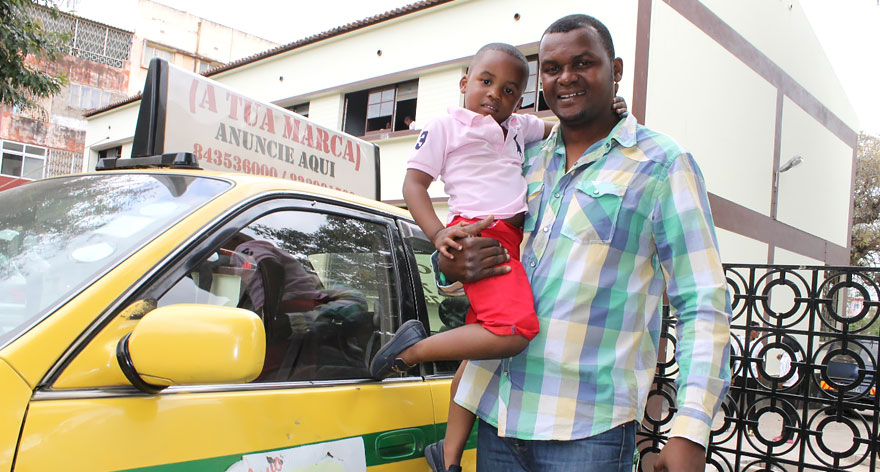
Baltimore, MD—More than 2 million men and youth across sub-Saharan Africa have reduced their lifetime risk of HIV infection by accessing Jhpiego-supported voluntary medical male circumcision (VMMC) services. This milestone—including more than 1 million procedures performed in the last two years alone—represents more than 15 percent of the World Health Organization-estimated 11.7 million VMMCs performed worldwide since 2008.
Jhpiego, a nonprofit global health affiliate of the Johns Hopkins University, has worked with the governments of East and Southern African countries since 2008 to implement VMMC as part of a comprehensive HIV prevention strategy aimed at interrupting the transmission of HIV to save lives. Studies have shown that VMMC reduces female-to-male HIV transmission by approximately 70 percent.
“Over the past three decades, the world has made incredible progress in its efforts to prevent and treat HIV/AIDS. Jhpiego is proud to have played a part in that progress, particularly through our support of 2 million VMMCs across sub-Saharan Africa,” said Leslie Mancuso, CEO and President of Jhpiego. “With the strong leadership and partnership of local governments and providers, and the support of the US Government, we look forward to accelerating the pace of change to create an AIDS-free generation.”
Jhpiego’s work to provide 2 million safe, high-quality VMMC procedures in 12 countries has been funded by the US President’s Emergency Plan for AIDS Relief (PEPFAR) through the US Agency for International Development (USAID), the US Centers for Disease Control and Prevention and the US Department of Defense HIV/AIDS Prevention Program.
New mathematical modeling to be released by PEPFAR through USAID’s Supporting Operational AIDS Research project suggests Jhpiego’s results alone could avert more than 50,000 HIV infections through 2025.
In cooperation with the countries’ ministries of health and defense, and in partnership with the World Health Organization, Jhpiego has been instrumental in preventing the spread of HIV on global and national levels. For example, Jhpiego has helped shape the clinical standards for quality VMMC implementation and co-written the World Health Organization’s reference manual that serves as the definitive clinical resource for all VMMC programs. On a national level, Jhpiego has worked with countries to train thousands of health workers to provide safe, high-quality procedures and developed protocols for quality assurance and improvement in VMMC programs.
Increasing access to VMMC services has been one of Jhpiego’s most profound contributions to the challenge of preventing the spread of HIV. In Tanzania, more than half a million men have been circumcised in Jhpiego-supported programs in three high HIV prevalence regions, dispelling common myths and misconceptions about acceptance of this strategy among a population with high HIV prevalence but low circumcision rate.
Jhpiego’s work has enabled men and boys across East and Southern Africa to access HIV testing, information about sexual and reproductive health, and other health screening, in addition to the circumcision procedure itself.
Using innovative approaches and providing technical assistance to scale up VMMC and reach communities in remote areas, Jhpiego has:
- Pioneered the use of geographic information systems to identify and serve hard-to-reach communities, innovating a solution to the problem of serving clients who were unlikely to have received VMMC;
- Developed a new cadre of VMMC providers by training nurses in basic surgical skills to assist in the procedures; this task sharing served to address a persistent lack of available physicians;
- Linked VMMC clients who test positive for HIV to care and treatment and also provided treatment referrals for other health conditions; and
- Provided quality improvement expertise to support governments in maintaining provider skills and competencies in VMMC services.
The real champions of VMMC are the men who have not only received the services, but who are educating their brothers, sons, fathers and friends about its benefits:
- Mokhele, a teacher and father of two sons in Lesotho, was among the 108,000 Basotho men who have benefited from the country’s HIV prevention program; he championed VMMC and the accompanying health services and ensured his sons underwent the procedure as well.
- James Jieng, a nurse in Ethiopia, credited his health care provider colleagues with educating communities on the benefits of VMMC and dispelling myths so that men like himself could confidently access free services.
- Amaral, the lead singer of a prominent Zambezia-based band in Mozambique, composed a theme song for the national VMMC program and has since become circumcised and an activist for the health of his community. His outreach and involvement reflect the diverse strategies employed by the Tanzanian Ministry of Health to spread the message of the lifesaving benefits of VMMC.



